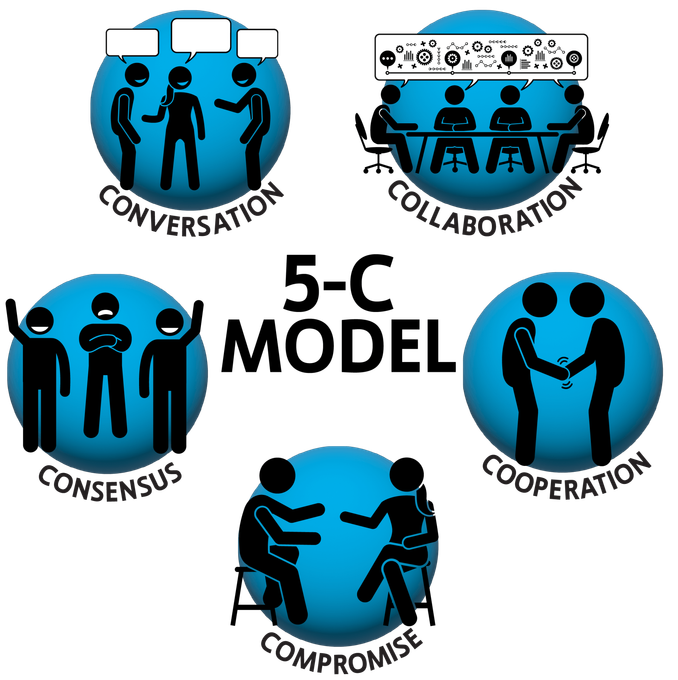Positive parent-educator partnerships lead to more effective programs, services, and placements
Now available on Amazon and Barnes & Noble

New Ideas & Knowledge
Increase your understanding of the Special Education Process. Educators and Parents alike will gain deeper knowledge about every aspect of this unique educational experience.
Shared Vision
Develop a shared vision in order to most effectively provide for student success. When the school and home work in synchronicity, they create an improved learning experience.
Effective Communication
Effectively and clearly present your needs in a data-driven, unemotional manner. Learn active listening strategies and other techniques including perspective taking to deliver best practices resulting in improved student learning.
Ask the Educators
A Podcast for Positive Parent-Educator Partnerships
Peggy Bud and Tamara Jacobson are the voices behind Ask the Educators, bringing together over 60 years of experience as teachers and administrators. They believe that the child’s voice must be at the center of all conversations. Best practices highlight the importance of parents and educators building a strong, positive partnership to support student success.
Each episode of Ask the Educators takes a deep dive into relevant 21st Century topics. Through animated conversations, Peggy and Tamara break down the what, why, and how of each podcast by sharing their expertise and professional knowledge. They leave their listeners with practical, easy-to-use strategies to foster collaboration within the child’s community of practice. The purpose of each podcast is to equip parents and educators with tools and perspectives that can help ensure each child receives the support they need.
This timely and innovative roadmap for parents, educators, and administrators highlights the importance of effective communication methodology, appropriate correspondence, and data collection recommendations. Effective communication is often missing from the IEP team’s conversation. Navigating Special Education provides a foundation for building proactive, positive partnerships that will lead to 21st-century best practices for students.
The 5C Model of Communication: Conversations, Collaboration, Cooperation, Compromise, and Consensus presented in Navigating Special Education helps to forge trusted alliances between school districts and families.
Navigating Special Education draws upon the authors’ 60-plus years of combined experience by using:
- Anecdotal, evidence-based real-life scenarios
- Templates for letter writing and extensive data collection
- A user-friendly appendix and glossary of terms
As stakeholders, wouldn't you like to have successful meetings where everyone’s voice is heard, respected, and understood? After reading
Navigating Special Education, families, educational professionals, college students, and special education organizations will be able to implement effective models of communication and build positive partnerships.
An easy-to-use strategy for parents & educators
The 5-C Model of Communication
By using the 5-C Model of Communication ( Conversation, Collaboration, Cooperation, Compromise, and Consensus) at every step of the IEP process, parents and educators will be better equipped to build positive partnerships that lead to student success.
If followed step-by-step, this model will guide teams to work with transparency, develop trust, and reach the end game, which is creating a shared vision regarding the student’s education plan.

JOIN US AT THESE EVENTS
Speaking Engagements
- April 24, 7:00 pm – 8:00 pm ET
Navigating Special Education: A Moderated Conversation @ Westport Library, Westport, CT. - May 10th, 8:00 pm ET
Navigating Special Education: Guest speakers at Missouri State University's “Working with families of exceptional individuals” course. - May 16, 7:00 pm – 8:00 pm ET
Navigating Special Education: Book Event @ Bernards Library, Basking Ridge, CT, - June 9th, All Day
Navigating Special Education: Speakers at NJCIE Summer Inclusion in Leadership Conference at Montclair State University. - June 13th, 1:00 pm ET
Navigating Special Education: Corporate DEI Workshop at Vericast. - October 24, 2023
NPR: Navigating the IEP Process, A talk given to the ERG Caregivers Group. - January 4, 2024 7:00 - 8:00PM
Navigating Conversations, A Panel Discussion
Sponsored by SPED*NET, (Special Education Network, Ltd. is a not-for-profit organization dedicated to helping parents of children with special needs become their children’s best advocates.)

Ready to start
Navigating Special Education?


About the Authors
Peggy and Tamara have a shared vision: to help IEP teams form partnerships. Over 10 years ago, they met in a LinkedIn special education conversation. After speaking on the phone, they agreed to meet in person, even though they lived over 100 miles apart. Once they met, they realized the only way to share their vision, with the world, was to write a book. They believed this was the path to change! However, writing their book presented many logistical challenges. It wasn’t until COVID 19 and the lock down that they saw a way to overcome these challenges; Zoom and Google Docs. After hours of conversations and writing, they used their core values to develop the 5-C Model of Communication: conversation, collaboration, cooperation, compromise and consensus. Peggy and Tamara believe communication is the missing link in most IEP meetings. They see their book providing teams with the tools needed to form positive partnerships and develop a shared vision.


